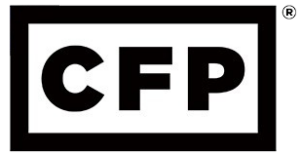It’s not just our homes that could benefit from a good spring cleaning—our finances could use a refresh too! Taking the time to spring clean your finances can bring clarity, organization, and a sense of control. In this blog, we’ll explore some essential steps to spring clean your finances and set yourself up for financial success.
Assess Your Financial Situation: I recommend getting a handle on your net worth for a few reasons. First, it may become apparent it’s time to consolidate policies, accounts, credit cards, or debt. I can’t tell you how many new clients didn’t realize how huge their financial footprint became after years of opening store cards, a 401k plan with each new employer, and signing up for local checking and savings accounts to autopay limited-term loans. It’s a lot to keep track of! You’ll also have an opportunity to review account titling and beneficiary designations because it’s really amazing how stale these choices can become without much time passing. Lastly, you can re-evaluate the market value and overall condition of non-investment accounts, such as real estate, businesses, boats, cars, etc.
Check-in with your insurance agent: It may be the right time to compare your price and coverage options for your home and auto. And by the way, should you also be considering umbrella and valuables coverage? Just because a policy made sense for you in the past, doesn’t mean it will now or in the future. Between changes to underwriting and your personal circumstances, getting some quotes can help you save money and/or boost your coverage. And if you can think of any other services that can be negotiated, now’s a great time. Consider electric supply, annual propane or oil contracts, cable/internet, cell phone, landscaping, and pool services,
Calculate your Cash Flow: Do some quick math to figure out what you brought in for the prior year and then minus out your Federal, State, and FICA taxes (which you’ll know as you likely just filed). Also minus out any intentional savings through work plans, etc. You’ll now know what was in the palm of your hand to spend. If your cash is about the same level as the year prior – then you spent it all. If it’s higher, than you unintentionally saved. If your cash is the same but you have some new loans, then you spent more than what you brought it. If you’re quickly realizing this exercise means too much has been spent, then identify expenses that are no longer serving you and consider cutting them from your budget. Redirect the money toward rebuilding a cash reserve or accelerating debt repayment. If you’re finding that you unintentionally built up cash, then it’s time to create a more deliberate investment strategy. Powwow helps determine cash flow with nearly every client and is happy to help should you need assistance.
Cash Reserve: Speaking of cash, whether too much or too little, now is a great time to set what an appropriate cash reserve should be. Typically it’s 3-6 months of spending + any big known short-term goals. Where you should keep it is just as important, as it’s painful to think of emergency cash on the sidelines making pennies. Read about how to best handle cash reserve here.
Check your Credit Report: This is one of the driest reports you can look at, but if you sign up for CreditKarma I find the process much better! They not only supply you with an overview of loans and cards attached to your name, but also provide a free credit score which is constantly updated. If your score moves, they provide notifications and also some reasoning as to why the score increased/decreased. If something look wrong they’ll provide assistance and instruction on how to have it corrected. If you’re wondering how making a financial change could impact your score, they have a simulator to help you make a wise decision. Staying on top of your credit report and score can be helpful to ward off fraud and during big credit events, such as buying a home.
Set Financial Goals: Spring clean your finances is not just about tidying up—it’s also about setting new goals and aspirations. It may be adjusting a savings strategy for retirement or figuring out reasonable financing for a home renovation. It could be about investing in yourself by taking a chance on a business idea or setting expectations for your children’s eventual college education. The purpose of building a financial plan with Powwow is to visually see how new goals or adjustments interact with your personal finances (income, current living expenses, and existing net worth). This process removes white noise, sets timing and spending parameters if there needs to be a little give and take, and creates motivational action items.
Just like decluttering your home, allow yourself some time to spring clean your finances. It certainly requires a bit of effort and commitment! But the rewards are well worth it—greater financial security, reduced stress, and a clearer path towards your goals. And you could feasibly tackle just one of these tips each weekend and you’ll be all done by summer! By following these steps and staying proactive about managing your money, you’ll be well on your way to a brighter financial future. So roll up your sleeves, grab your financial duster, and let’s get cleaning!





This Post Has One Comment
Pingback: Effective Options to Reduce Credit Card Debts without Hurting your Credit - North Andover Financial Planner | Powwow, LLC